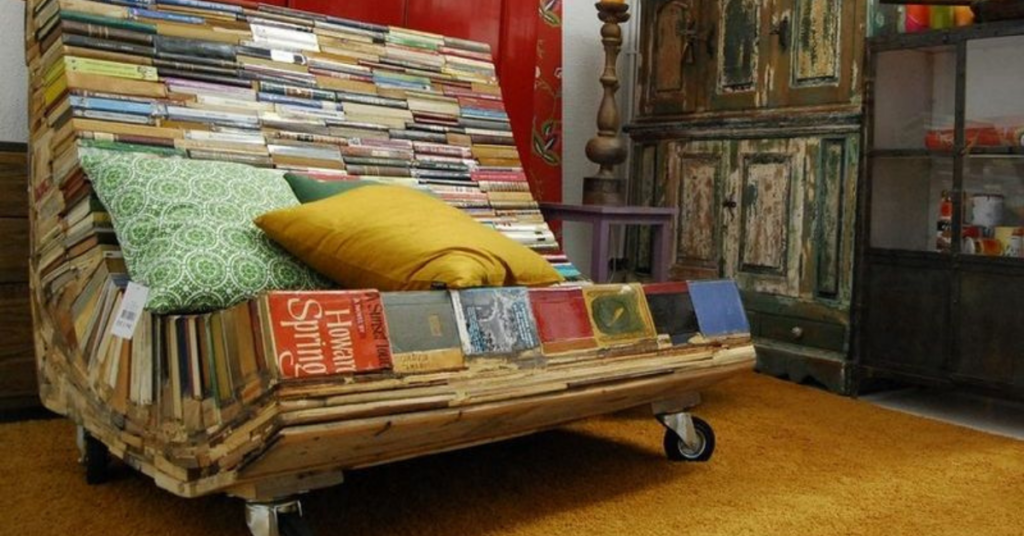
When the semester ends, it’s time to move on to the next level of your college education. Or better yet, maybe it’s the day you can finally say goodbye to your college. But hold on; there are other things to say goodbye to. Apart from the campus grounds, classrooms, and libraries, there are your old, stacked-up college textbooks.
This is when you face the question, “What to do with old books?” At this point, knowing how to deal with them will help you avoid the unhappy scenario of dragging the pile of textbooks—all these titles you’ll probably never use again—back home.
So, here’s what you need to know. When your old textbooks have served their purpose, they don’t have to be confined to forgotten corners. While recycling, donating, and selling are common ways to part with these literary companions, there exists a realm of unconventional possibilities for repurposing them. In this article, we’ll take a look at a range of ideas on how to give your textbooks a new life. From donating to transforming them into art pieces, these suggestions offer a chance to reuse your old copies of International Financial Management, Psychological Science, or else.
How to Make the Most Use of Your Old Textbooks
What’s the big deal with old college textbooks? And old books in general? Why’s it so important that you know what to do with them (instead of simply throwing the annoying copy of Organic Chemistry away)?
Getting rid of old books, especially textbooks, can cause environmental and ethical problems. When we toss out books, they take up space in landfills and contribute to increasing waste generation. And producing books requires significant resources, like paper, ink, energy, and water. That’s why it’s important to reuse or recycle old books instead of just throwing them away. By doing so, we can prevent the waste of valuable resources and help reduce greenhouse gas emissions that contribute to climate change.
So, reusing or recycling old textbooks can really make a difference, especially when it comes to the environment. But with some creativity, we can give those old books a new lease on life.
1. Donate Your Old College Textbooks
This, by far, is the easiest solution. So, if you’re done with a particular semester or session, and you’ve got 5–8 textbooks (including the Statistics: Concepts and Controversies you particularly hated) you don’t need anymore, what’s next?
Unless you want to clutter your room with tons of paper, you can simply donate them. While you don’t need your Creative Writing books, there are definitely some students from, say, the Department of English out there who do.
So why don’t you lend your neighbors a hand (or, in this case, a paperback or a hardcover)?
“Okay, I’m in, you’ve convinced me, but how do I donate my old textbooks?” you may ask. Here’s how: check a few recommendations we’ve prepared for you.
- Libraries: It’s the most obvious choice. When people think of books, be they educational, leisurely, or whatever genre, the library is the first place that comes to mind. So, instead of reckoning what to do with old textbooks for hours, simply head out to a local library to donate your treasure.
- Schools in need: Reach out to schools in underserved areas or schools with limited resources. Donating textbooks directly to these schools can positively impact students who might not have access to learning materials.
- Community centers: Community centers, after-school programs, and youth organizations might appreciate textbook donations to support educational initiatives.
- Senior centers: Some senior centers or retirement homes have libraries and reading programs. Donating textbooks can provide seniors with educational and engaging reading material.
- Prisons or correctional facilities: Some correctional facilities have educational programs for inmates. Donating textbooks can contribute to their educational opportunities. For instance, “Books to Prisoners” programs aim to provide books and educational materials to incarcerated individuals. Most of their efforts are funded by public book donations.
- Charity organizations: The beauty of this world lies in the thousands of global organizations striving to make the world a better place. And if you want to be a part of this, you can simply donate your old college textbooks to these organizations (e.g., the Salvation Army or various thrift stores). This way, you’re sure your old textbooks are heading to the shelves of those who need them.
- Books for Africa: This organization aims to solve the educational drought in the African regions. And one way you can help is by donating old college textbooks to those who need those materials really badly.
- Better World Books: Across the US, you can also find Better World Books Drop Boxes. And choosing to donate your books here, you’ll be lending a hand to an organization devoted to boosting educational opportunities through book reselling strategies. See Better World Books reviews on BookScouter.com)

2. Sell Your Old Textbooks
“I’m a college student and need to make extra money. Send help.” Yeah, you don’t need to say that anymore if you’ve got some old textbooks lying around.
That’s because selling old college textbooks is the most common and lucrative way of getting rid of books you don’t need anymore. Plus, you’re helping fellow students access affordable learning materials. It’s a win-win—declutter your space, help the environment, and give others a chance to excel in their studies without breaking the bank, especially considering the high cost of textbooks nowadays (feel free to read the article on Why Are Textbooks So Expensive?).
To maximize your profits, we recommend developing some skills on how to clean books before listing them for sale.
Sell to Other Students
Let’s take a look at the first option. There will always be one student, or two, or a whole class who needs a copy of Calculus to get through a course. What happens when you own such a textbook? You can exchange it for cash. Easy, right?
You can spread the word about your Calculus copy through bulletin boards, student forums, or social media groups dedicated to your college or university. Yet, the perk of this reselling strategy is that students will only choose your offer if you ask for less than a bookstore. Besides, you must ensure your textbook’s condition is good (if not pristine), or the reselling idea is a no-go.
Sell to College Bookstores
College stores often have buyback programs where they purchase used textbooks from students. While the prices might be considerably lower than what you paid for them initially, it’s still a convenient option. Keep in mind that not all textbooks are accepted, as colleges align with the current curriculum and demand. It’s best to sell your books at the end of the term when there’s a higher demand for them. This way, you have a better chance of selling them and earning some money. Plus, you don’t have to worry about finding individual buyers!
Sell via BookScouter
Another good and profitable option is to sell your books online via BookScouter. In this case, you don’t need to look for students who want to buy from you. The best thing about BookScouter is that it helps you compare the prices for your textbook from 30+ book-buying websites. To sell your books, just enter the ISBN, and you’ll get a list of several vendors willing to buy them, along with the price offers. All you need to do is decide where to sell your textbook at a maximum price. So if you want to save time and get the most out of your copy of Calculus, use BookScouter to compare prices from different places that buy books.
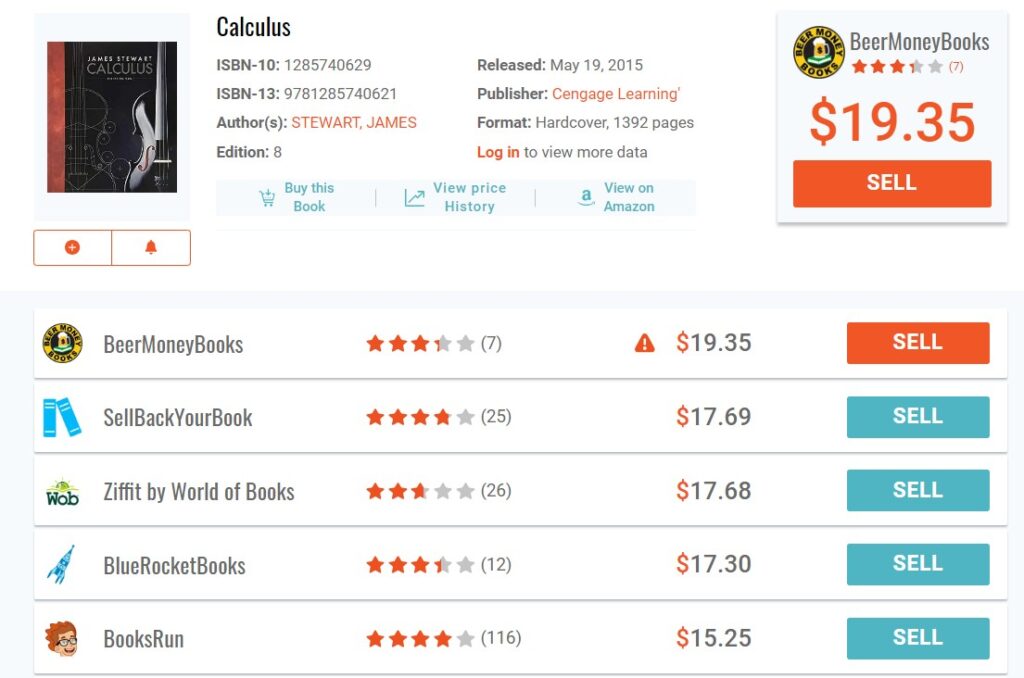
@castanedastyles Reply to @fastandsassynails check out Book Scouter. It’s free. It helps you find buyers for your particular book. #bookselling #booksforyoupage
♬ Monkeys Spinning Monkeys – Kevin MacLeod & Kevin The Monkey
3. Recycle Your Old Textbooks
If you realize your books cannot be sold or donated, there’s an alternative. You can always resort to textbook recycling.
Recycling might not sound super exciting, but it’s actually a pretty cool way to give your old books a second chance at life. Check out your local scene for recycling centers that take old books. Libraries and community spots are often good places to start. They usually have these nifty bins where you can drop off your old textbooks and send them to become something new and awesome. Many cities have drop-off points for paper recycling, where textbooks can become recycled paper. Check bookstores or educational institutions for recycling programs. For example, you can go to the WM (Waste Management) website and find the closest drop-off location to your home.
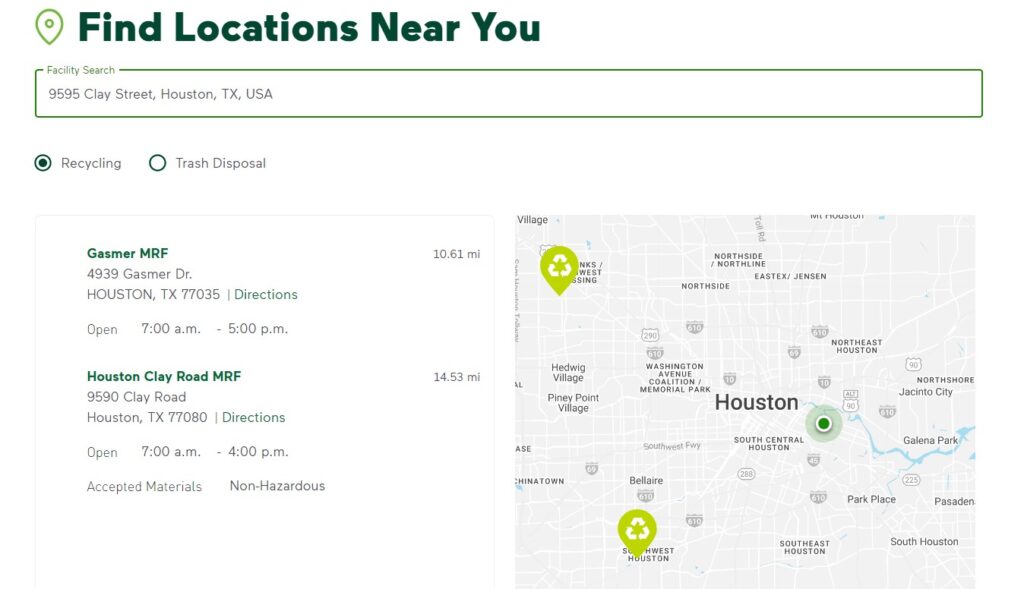
Alternatively, you can check Berecycled.org, the website of Keep America Beautiful, where you can enter your zip and find the closest recycling locations. Among them, there’re places that accept paper and cardboard, so you can ask about books and textbooks.
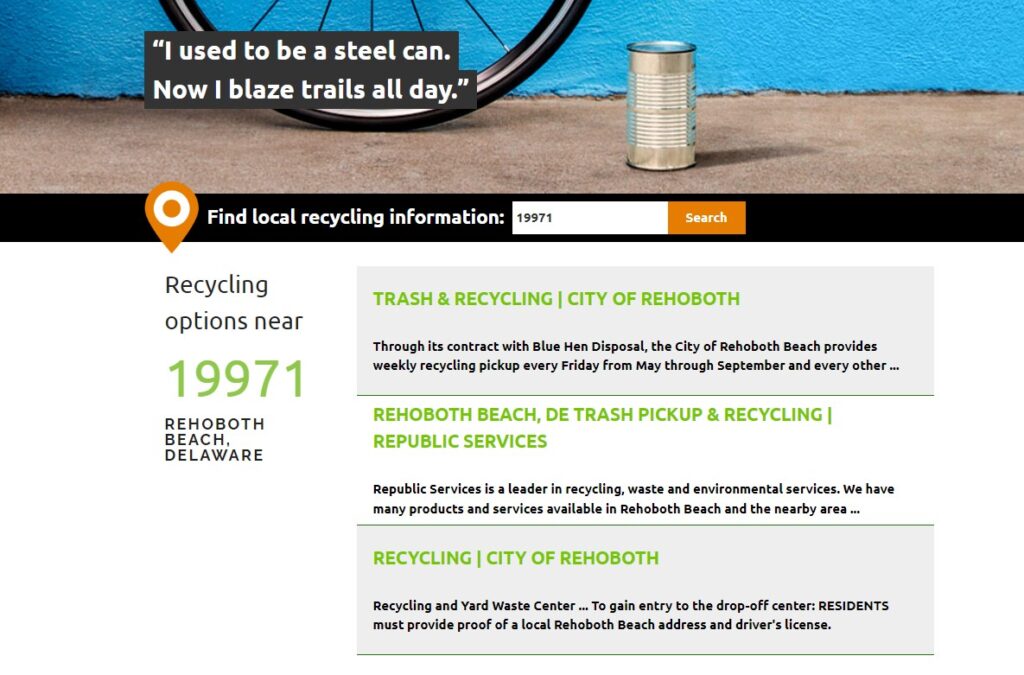
So, if you’ve got a bunch of worn-out, sad-looking, old college textbooks, it’s about time you saw to it that they got a green exit.
4. Trade Your Textbooks
There are other ways you can declutter and organize your room. One example is to trade your textbooks. There must be other items, or even books in particular, that pick your interest. Why not use what you have to get what you want? You can trade your books with friends for game consoles, materials, CDs, or even a piece of clothing.
Check such platforms as Paperback Swap and BookMooch to make your book trade easier. They allow you to swap books you don’t need for others you may desperately want. Both platforms aim to promote book sharing, recycling, and reducing waste by extending the life of books.

If you’re looking for fun and sustainable ways to reuse old textbooks instead of just recycling, donating, or selling them, we’ve got some unconventional and creative ideas on how to repurpose them. They will not only help the planet but also give a touch of uniqueness to your space. Check them out:
5. Turn Your Old Textbooks Into Useful Décor
Channel your creativity into crafting narrative-inspired home decor. Turn your old textbooks into creative art pieces. Transform book pages into delicate origami creations and layer them to make lampshades for a personalized touch. Hang paper angels on the walls or get a little messy with paper maché ideas—there are tons of options you can turn your old textbooks into. Plenty of online DIY craft projects can teach you different ways to get the most out of old textbooks and infuse your living space with the art of storytelling and innovative design. See our list of nine awesome Halloween book decor ideas as an example.

6. Use Books as Functional Furniture
Want to add some unique and functional furniture to your home? Try using old textbooks! You can stack them horizontally or vertically to create bookshelves, side tables, or even coffee tables that match your interior design. Plus, by mixing books from different disciplines, you can create eclectic pieces that are sure to be a conversation starter.
7. Use Your Textbooks to Make Eclectic Gift Wrapping
A fun way to make your gift wrapping extra special is by using book pages. Look for pages with text or illustrations related to the occasion or the recipient’s interests. This little touch shows that you put some thought and care into the presentation. And don’t forget to add a pretty ribbon!
8. Make Memory Journals from Textbooks
Why not transform your old textbooks into something special by creating memory journals or scrapbooks? You can add mementos, photographs, and even handwritten notes to capture those cherished moments. These journals make for heartfelt gifts that are perfect for your loved ones, commemorating all the wonderful experiences you’ve shared together.
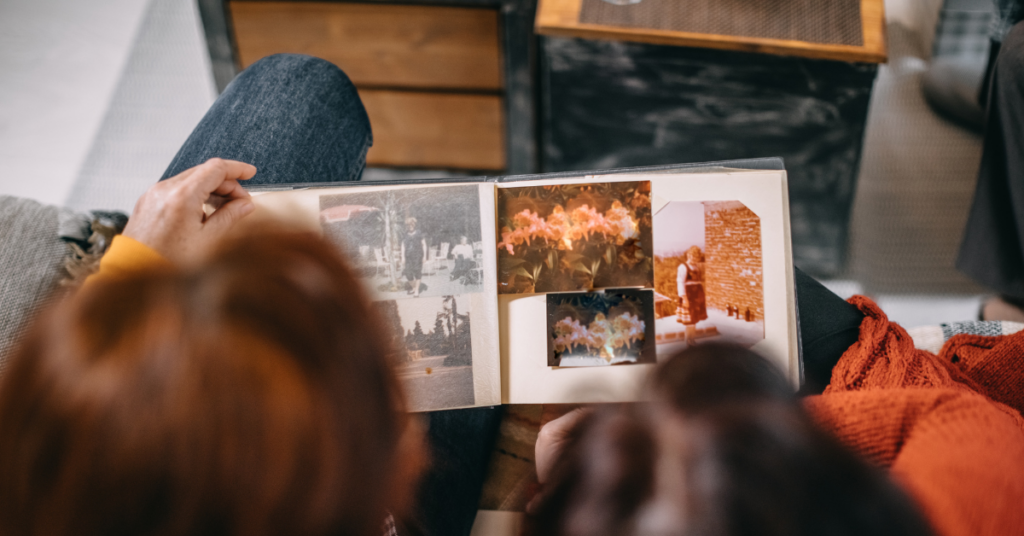
Conclusion
Textbooks are useful tools that help you learn and make studying for courses a breeze. However, every tool has its lifespan, and for most textbooks, the lifespans don’t extend beyond your college stay. So, if it’s your turn to say goodbye to old textbooks, why not do it the right way with the tips above?
As you look through your old textbooks with sadness and gratitude (we hope), remember that there are many ways to breathe new life into them. Whatever you choose: selling, donating, recycling, or repurposing, you’re not just giving old textbooks a second chance; you’re also contributing to a more sustainable future. It’s important to keep that in mind as we go about our day-to-day lives.


